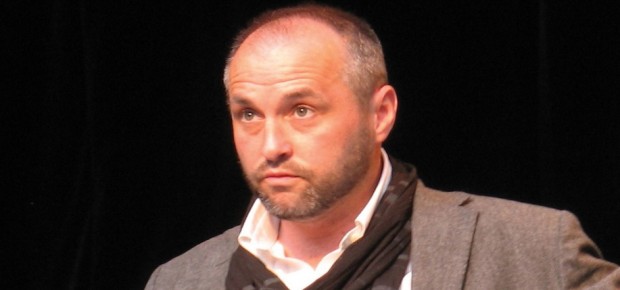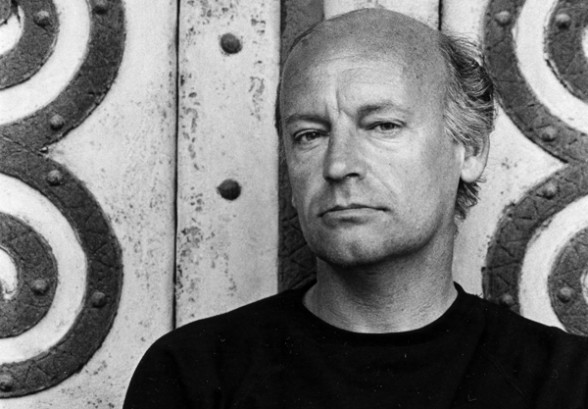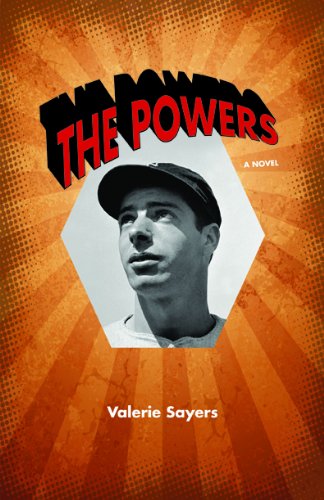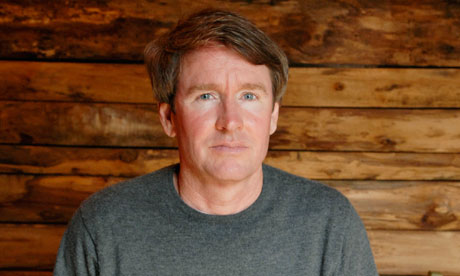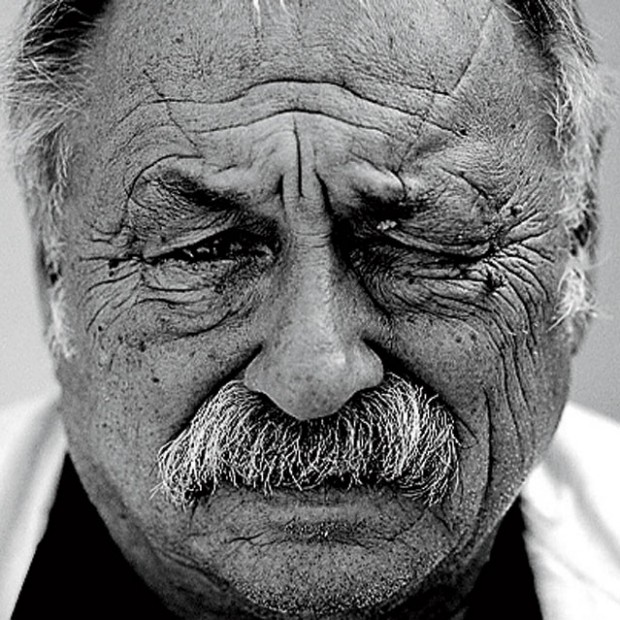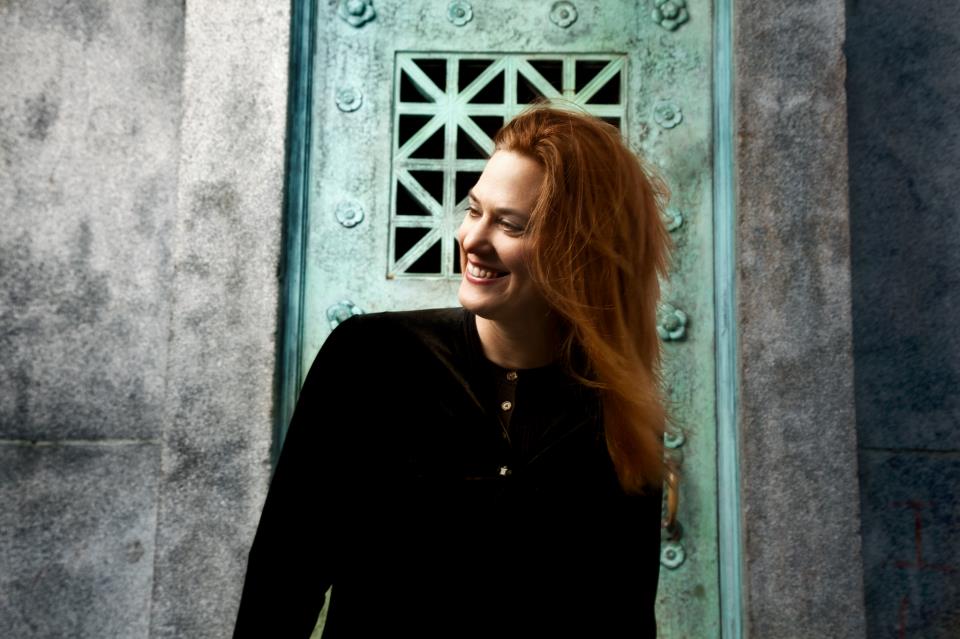Don’t Worry, I’m Not Going to Tear My Shirt off and Punch a Critic in the Face, But.
categories: Bad Advice / Cocktail Hour / Reading Under the Influence
comments: 33 comments
I’ve just returned from a multi-city book tour. There were happy meetings and reunions, great Q&A sessions, bookstores converted to speakeasies, and at the last stop, a basket of champagne and strawberries from my publisher. I enjoy posting photos from readings and cities I visit to support those who support me–the towns, the bookstores, the reviewers, and the people–but I always hesitate before hitting “upload” because there are quite a few writers out there still trying to find an agent, facing rejection, and unable to get a publisher. This is the exact arrested state of publishing misery in which I resided for nearly a decade, and while I was happy for others and their success, on bad days, seeing it felt like lemon juice in a paper cut. Continue reading →
Lundgren’s Book Lounge: “City of Bohane,” by Kevin Barry
categories: Cocktail Hour / Reading Under the Influence
comments: Comments Off on Lundgren’s Book Lounge: “City of Bohane,” by Kevin Barry
Just published in paperback (Graywolf) and recipient of one of the world’s most prestigious prizes, The International IMPAC Dublin Literary Award, City of Bohane by Kevin Barry is a mesmerizing magic passport to another world, a futuristic Ireland conjured up by the author’s relentless re-imagining of the use of language. Just as the subversion and re-working of language created Joyce’s Dublin or the future in Burgess’ A Clockwork Orange, Barry has conceived a city sometime in the future of the Emerald Isle, an Irish metropolis ruled by ritual and violence and described in an idiom all its own. Continue reading →
Lundgren’s Lounge: “Transatlantic,” by Colum McCann
categories: Cocktail Hour / Reading Under the Influence
comments: 4 comments
[Author disclaimer: During portions of my reading of the following novel I was in a bit of a narcotic haze after hip replacement surgery–BL]
There are authors we read for the deeply satisfying and exquisite sensual pleasure to be found in their words. These writers may demur, claiming the story to be the thing, stepping into the pages of their novels is to enter a different, sharper, more immediate reality, a place of heightened senses and the lurking expectation that something important about existence might be revealed at any moment: think Ondaatjie, Harrison, Didion, Toibin… Colum McCann’s most recent work, Transatlantic reaffirms his inclusion in this company. Continue reading →
Writing from Inside: “Nail,” by Danielle R.
categories: Cocktail Hour / Reading Under the Influence
comments: 20 comments
This piece from Danielle is an exercise in empathy, in which she finds a subtle connection between herself and an inanimate object–in this case, a nail that showed up (another story) in a little pink bag. –MW
NAIL by Danielle R
I started off shiny and new, freshly crafted, sitting high above the hayloft in the Smiths’ barn. That is where my home was. For decades, I stayed sturdy and strong, while the wood around me slowly decayed. Finally, I fell from my post and landed on the barn floor. I lay there collecting dust and being kicked about by the farmers and cowhands, until one day my point penetrated the sole of a pair of work boots. Continue reading →
Lundgren’s Book Lounge: Eduardo Galleano’s “Children of the Days”
categories: Cocktail Hour / Reading Under the Influence
comments: Comments Off on Lundgren’s Book Lounge: Eduardo Galleano’s “Children of the Days”
Throughout his writing life Eduardo Galeano has given voice to the silenced. Hopscotching the globe to elude the death squads of right-wing military dictatorships, he has offered up a steady succession of works of brilliance, mostly chronicling the history of the Americas. He has described himself as “… a writer obsessed with remembering the past of America… intimate land condemned to amnesia.” His newest work, Children of the Days, continues to expand notions of literary genre. Is he a journalist? An essayist, a historian or novelist? Certainly a poet… Children of the Days follows the days of the calendar to offer up vignettes from the forgotten annals of history. While it is impossible to adequately characterize the cumulative power of the writing, here is a small sampling: Continue reading →
Baseball, Joe Dimaggio, and Pacifism: Colbert, How Can You Resist?
categories: Cocktail Hour / Reading Under the Influence
comments: Comments Off on Baseball, Joe Dimaggio, and Pacifism: Colbert, How Can You Resist?
Really? Joe DiMaggio? Another WWII novel?
I know. Like everything I write, this new novel, The Powers, just followed me around and insisted on being written till it wore down my resistance. It started during a conversation my then-draft-age sons were having about the Iraq War and whether they could in good conscience claim C.O. status. That topic led us to WWII, the one war we collectively tend to think of as the “good war,” which led me to think about 1941. Continue reading →
Lundgren’s Book Lounge: “Billy Lynn’s Long Halftime Walk,” by Ben Fountain
categories: Cocktail Hour / Reading Under the Influence
comments: 1 comment
War is a petri dish for the creation of great literature. Setting aside the absence from the “forgotten war” in Korea, the United States‘ recent military engagements have inspired The Naked and the Dead and Catch 22 from World War II and The Things They Carried and Dispatches from the Vietnam War. Yet until recently there has been a glaring absence of a defining work from the War on Terror. Until now. Continue reading →
Lundgren’s Book Lounge: “The River Swimmer,” by Jim Harrison
categories: Cocktail Hour / Reading Under the Influence
comments: 1 comment
As readers we all have our favorites–authors whose work seems to speak directly to us and resonate in our very bones. For me Jim Harrison is one of those writers and now we are graced with a new collection of novellas, The River Swimmer, that further enhances Harrison’s legacy as a writer with “immortality in him.” Continue reading →
Lundgren’s Book Lounge: “The Astral,” by Kate Christensen
categories: Cocktail Hour / Reading Under the Influence
comments: 1 comment
Among the wealth of pleasures of working in a bookstore like Longfellow Books, with its family of literate customers and colleagues, is learning about treasures that might, in another lifetime, have passed unnoticed. A recent serendipitous connection led me to Kate Christensen’s The Astral and the acquaintance of her protagonist Harry Quirk, one of the more finely drawn and winsome characters to be found in recent fiction.
Lundgren’s Book Lounge: “The Flamethrowers” by Rachel Kushner
categories: Cocktail Hour / Reading Under the Influence
comments: 1 comment
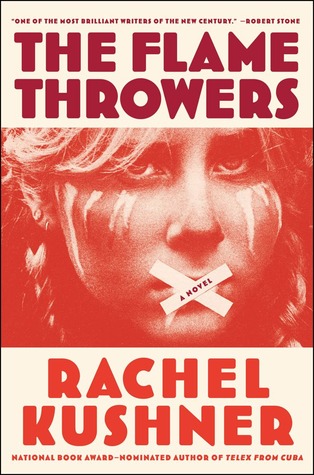 In a recent review I shared E.L. Doctorow’s description of the novel as “the presiding art–in it’s intentions, if only occasionally in its realization, a major act of the culture.” And when that very occasional, serendipitous ‘realization’ occurs, it is important because of its power to impact both the worldview of individual readers and the very cultural petri dish from which it arose. The Flamethrowers by Rachel Kushner is one of these rare books.
In a recent review I shared E.L. Doctorow’s description of the novel as “the presiding art–in it’s intentions, if only occasionally in its realization, a major act of the culture.” And when that very occasional, serendipitous ‘realization’ occurs, it is important because of its power to impact both the worldview of individual readers and the very cultural petri dish from which it arose. The Flamethrowers by Rachel Kushner is one of these rare books.
Author Kushner arrived on the literary scene in 2008 with Telex From Cuba, a National Book Award nominee that told the story of Castro’s revolution and the Americans forced to give up their tropical paradise and the riches it had afforded them. The Flamethrowers continues to explore the impacts of imperialism and the revolution that the inequities of imperialism inevitably spawn. Yet while politics may lie at the heart of much of Kushner’s work, the politics are often background, obscured by the sheer, dazzling beauty of her storytelling gifts. Kushner transcends questions of form because as James Woods points out in his scintillating review of The Flamethrowers in The New Yorker, Kushner has “… a natural, vivacious talent for telling stories and these stories… seem fictively real, cunningly alive. Novelistic vivacity, the great unteachable, the unschooled enigma, has a way of making questions of form appear scholastic.”





